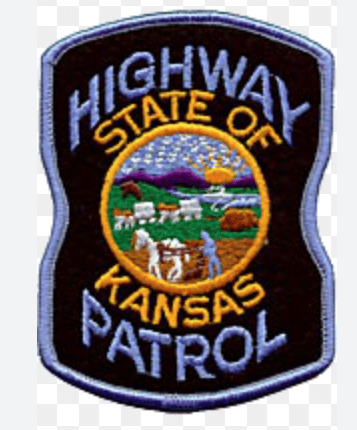
A controversial law enforcement technique called the “Kansas Two-Step” intended to give Kansas Highway Patrol troopers a reason to search vehicles for illicit drugs is the subject of a lawsuit brought by motorists who claim they’ve been victimized by the tactic.
Retiring KHP Superintendent Herman Jones is the defendant in U. S. District Court in a civil suit brought by several plaintiffs over the so-called “Kansas Two-Step”. The ploy involves a trooper, apparently ending a conversation with a driver in a traffic stop, beginning to walk back to their patrol vehicle, only to re-approach the stopped car to ask more questions of the motorist. The ruse allows time for the arrival of a drug-sniffing dog to indicate the presence of marijuana, for example.
Kansas is one of only three remaining states that has no form of legal marijuana — either a medical or recreational program or some form of legal THC products, the substance that causes the high in marijuana. Under Kansas law, possession of marijuana is a Class B misdemeanor punishable by a maximum of six months in jail and a fine of up to $1,000 for a first-time offense.
Kansas border states Missouri and Colorado have approved both medicinal and recreational cannabis.
Colorado resident Shawna Maloney testified that Kansas troopers trashed her family’s recreational vehicle during a 2018 stop using the Kansas Two-Step. Failing to find drugs, troopers eventually allowed the family to go on their way. Maloney is one of five plaintiffs in the lawsuit:
“I don’t feel safe driving through Kansas anymore,” she said in court.
We contacted the American Civil Liberties Union of Kansas, representing the plaintiffs, for comment. Spokesperson Esmie Tseng declined our request, citing the ongoing litigation, but referred us to a statement from Legal Director Sharon Brett in a press release:
“This is a crucial case – for our clients, but also for anyone else who travels on Kansas highways.
“This case addresses the Highway Patrol’s unconstitutional practices and widespread misconduct in violation of our most basic Fourth Amendment protections against unreasonable search and seizure. For too long, the Highway Patrol has run roughshod over the rights of motorists traveling on Kansas highways. People should be free to travel through our state without the fear that they will be unlawfully shaken down based simply on the small fact that they are coming from or are going to states that have legalized drug use in some capacity.”
We also reached out to the KHP and Assistant State Attorney General Arthur Chalmers, representing Superintendent Jones.
KHP declined to comment, and Chalmers did not respond.
U.S. District Court Judge Kathryn Vratil is presiding over the bench trial, meaning she will issue a verdict without a jury.


